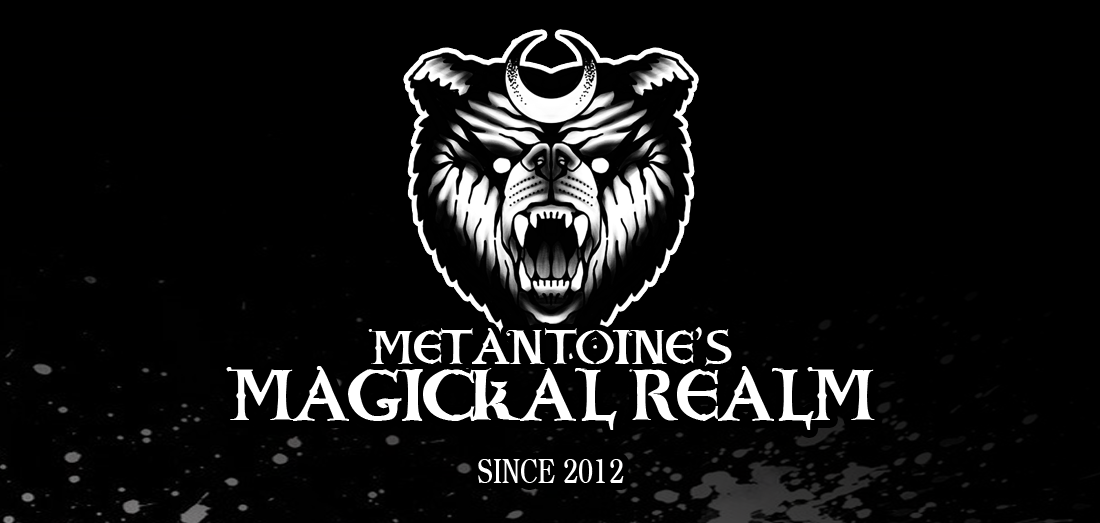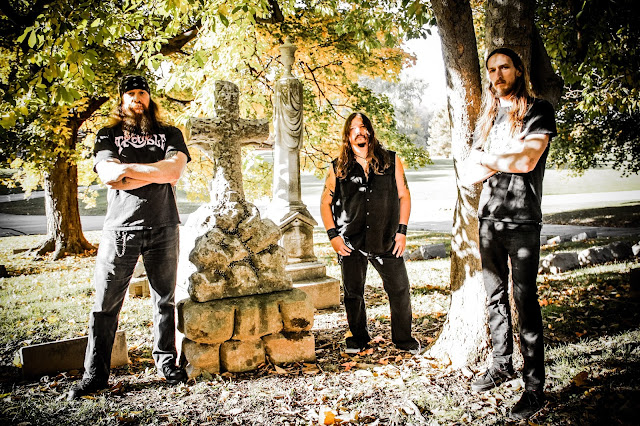Stoutness, Sophistication and Sorrow
Tony’s classics part III: One of my favorite bands for like a decade, I always wanted to get my thoughts together and write a Primordial review. This is, in my opinion, their magnum opus so here it is.
To the Nameless Dead is a pure emotional voyage through music with a strong historical grasp of the world. With these eight songs, Alan Averill explores the dark past of Ireland with a sharp pen and an intellectual mind. The lyrics while linked to certain moments in time can also be interpreted in a timeless or contemporary way. “Empire Falls” can be seen as the fall of the Roman Empire or the upcoming and likely destruction of the modern western world and he, himself, mentions the fall of the west in the notes of the truly epic “As Rome Burns”
“The West is ripe for the picking, ready for the fall”
It’s not an objective vision though and nor should it be. It’s a sad and pessimistic portrayal worthy of Ireland’s rough history. There’s harsh connotations about genocide, assimilation, the faith of nations and the reasons and repercussions of wars. There’s also a true analytic work behind the lyrics of Primordial and it’s true for all their albums. They underlines the deep meaningful aspects of Earth’s tragic and often unfair history. Their four previous albums (The Gathering Wilderness in particular) almost reached the perfect mix of depressive storytelling and music and even if the band has never released a bad album (and possibly never will), their formula has never been as accomplished as it is on this 2007 opus.
“History is often dictated by faith. Putting the worlds to rights while it passes you by. Is there an honour in following your words to the bitter end despite being plagued with doubts?”
If I truly believe in something it must be the fact that the quintet will never give up their quest to unravel the shadows of the human psyche with their sound. Still, enough about their thematics, let’s talk about how freaking good the music is instead. Primordial are one of those bands formed in the 90s who really managed to craft an idiosyncratic sound out of already existing sounds. Bands like Opeth, Moonspell, Rotting Christ or even Darkthrone all created new versions of genres but in Primordial’s case, it took more time for their identity to be developed to its most refined version, the To the Nameless Dead version. While 1995’s Imrama is a good album, it feels unfinished and lacking in scope. Taking the epic sound of Viking era Bathory and drowning it in Celtic folk, we should be in known territories but the compositions are so distinctive and surprising.
I do think that a lot of great bands possess the ability to build a wall of sound where all the instrumentation comes together to make the recipe totally complete. While you can of course praise the guitar playing of MacUiliam or the thunderous drumming of O’Laoghaire, the five guys all come together in the end. The songs are long and meandering in the best way possible. They’re also packed with riffs and never feel like they’re overlong. There’s basically no bands who are that tight at writing eight minutes songs. Primordial are classified as a black metal band only because no other genre can fit their lush yet dark sound. Dark metal isn’t a real genre either, go away Bethlehem. They’re hand to pinpoint not only because of Alan’s vocals but also because of the unique and intricate songwriting. Their riffs can often be seen as simple but they’re emotionally charged and the duel guitar approach gave the band an atmospheric force. It’s never whiny, self-absorbed or pretentious, it’s down to earth and has the right amount of melodies and memorable vocal lines to feed the entire city of Dublin for decades.
“Oh they’re folk metal? Like Korpiklaani?”
“NO.”
Folk metal is mostly a vile genre full of drink-along songs and lyrics about Hobbits and generic vikings with horns on their helmets (not historically accurate, motherfuckers). On the other hand, Primordial are so much deeper and interesting in their conservative but still quite original way. It’s not overproduced (“not very produced” to quote the booklet) and it makes the sound really natural. There’s no useless flush, no keyboards or flutes. It’s lo-fi folk metal full of gloomy attitude. As an example, the subtle use of acoustic guitar in “Heathen Tribes” is far from cheesy and overdone. Their seriousness and their sophisticated yet honest epic side is what makes them so great. They never try to impress with neoclassical guitar solos or bludgeon the listener with gear worshiping riffs. Primordial is the mysterious rogue at the obscured table at the back of the tavern who knows that he could take you down with ease if he wanted to. This album managed to kick my arse when I’ve heard it in 2008 and I still spin my copy often (three times during the writing of this review!)
Alan Averill has always been one of my vocalist for the unadulterated passion he delivers. He’s one of those instantly recognizable voices in metal and he’s always so emotional and expressive. He’s really good at those gritty harsh vocals like the ones on “No Nation on This Earth” but the soaring cleans were always my personal highlight as they’re the aspect of the band that made me a fan in the place. He’s like a possessed spirit singing the woes of his nation to whoever come across his tomb. Like the music, his voice transcends genres, he fits epic doom very well (see his other band Dread Sovereign) or even war metal (see the short lived Irish/Canadian project Blood Revolt) and he never gets boring.
Their latest two albums tried to expand their sound a bit but they’re not as compact and as To the Nameless Dead. This album hits all the sweet spots in terms of lyrics, riffs, ideas and overall enjoyment. Primordial are without a doubt a blue collar band, hard working and hard drinking individuals who continue to do what they love despite all odds. Regardless of who they appear to be, they’re highly intelligent and this is a masterpiece for the ages.
“The West is ripe for the picking, ready for the fall”
It’s not an objective vision though and nor should it be. It’s a sad and pessimistic portrayal worthy of Ireland’s rough history. There’s harsh connotations about genocide, assimilation, the faith of nations and the reasons and repercussions of wars. There’s also a true analytic work behind the lyrics of Primordial and it’s true for all their albums. They underlines the deep meaningful aspects of Earth’s tragic and often unfair history. Their four previous albums (The Gathering Wilderness in particular) almost reached the perfect mix of depressive storytelling and music and even if the band has never released a bad album (and possibly never will), their formula has never been as accomplished as it is on this 2007 opus.
“History is often dictated by faith. Putting the worlds to rights while it passes you by. Is there an honour in following your words to the bitter end despite being plagued with doubts?”
If I truly believe in something it must be the fact that the quintet will never give up their quest to unravel the shadows of the human psyche with their sound. Still, enough about their thematics, let’s talk about how freaking good the music is instead. Primordial are one of those bands formed in the 90s who really managed to craft an idiosyncratic sound out of already existing sounds. Bands like Opeth, Moonspell, Rotting Christ or even Darkthrone all created new versions of genres but in Primordial’s case, it took more time for their identity to be developed to its most refined version, the To the Nameless Dead version. While 1995’s Imrama is a good album, it feels unfinished and lacking in scope. Taking the epic sound of Viking era Bathory and drowning it in Celtic folk, we should be in known territories but the compositions are so distinctive and surprising.
I do think that a lot of great bands possess the ability to build a wall of sound where all the instrumentation comes together to make the recipe totally complete. While you can of course praise the guitar playing of MacUiliam or the thunderous drumming of O’Laoghaire, the five guys all come together in the end. The songs are long and meandering in the best way possible. They’re also packed with riffs and never feel like they’re overlong. There’s basically no bands who are that tight at writing eight minutes songs. Primordial are classified as a black metal band only because no other genre can fit their lush yet dark sound. Dark metal isn’t a real genre either, go away Bethlehem. They’re hand to pinpoint not only because of Alan’s vocals but also because of the unique and intricate songwriting. Their riffs can often be seen as simple but they’re emotionally charged and the duel guitar approach gave the band an atmospheric force. It’s never whiny, self-absorbed or pretentious, it’s down to earth and has the right amount of melodies and memorable vocal lines to feed the entire city of Dublin for decades.
“Oh they’re folk metal? Like Korpiklaani?”
“NO.”
Folk metal is mostly a vile genre full of drink-along songs and lyrics about Hobbits and generic vikings with horns on their helmets (not historically accurate, motherfuckers). On the other hand, Primordial are so much deeper and interesting in their conservative but still quite original way. It’s not overproduced (“not very produced” to quote the booklet) and it makes the sound really natural. There’s no useless flush, no keyboards or flutes. It’s lo-fi folk metal full of gloomy attitude. As an example, the subtle use of acoustic guitar in “Heathen Tribes” is far from cheesy and overdone. Their seriousness and their sophisticated yet honest epic side is what makes them so great. They never try to impress with neoclassical guitar solos or bludgeon the listener with gear worshiping riffs. Primordial is the mysterious rogue at the obscured table at the back of the tavern who knows that he could take you down with ease if he wanted to. This album managed to kick my arse when I’ve heard it in 2008 and I still spin my copy often (three times during the writing of this review!)
Alan Averill has always been one of my vocalist for the unadulterated passion he delivers. He’s one of those instantly recognizable voices in metal and he’s always so emotional and expressive. He’s really good at those gritty harsh vocals like the ones on “No Nation on This Earth” but the soaring cleans were always my personal highlight as they’re the aspect of the band that made me a fan in the place. He’s like a possessed spirit singing the woes of his nation to whoever come across his tomb. Like the music, his voice transcends genres, he fits epic doom very well (see his other band Dread Sovereign) or even war metal (see the short lived Irish/Canadian project Blood Revolt) and he never gets boring.
Their latest two albums tried to expand their sound a bit but they’re not as compact and as To the Nameless Dead. This album hits all the sweet spots in terms of lyrics, riffs, ideas and overall enjoyment. Primordial are without a doubt a blue collar band, hard working and hard drinking individuals who continue to do what they love despite all odds. Regardless of who they appear to be, they’re highly intelligent and this is a masterpiece for the ages.
 |
| Primordial in 2007 |











